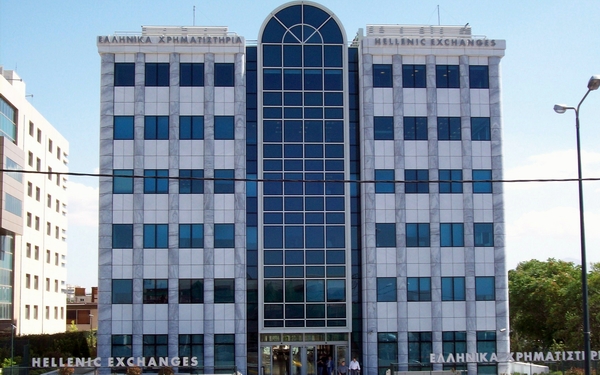Picture: www.newmoney.gr
The agony for the completion at the last possible moment of the deal between the National Bank and Eurobank is increasing, since the Troika is still keeping the management of both banks in suspense.
And while creditors are holding meetings with Greek bankers, Governor of the Bank of Greece George Provopoulos and Finance Minister Yiannis Stournaras in Athens, in Brussels, European Commission spokesman Olivier Bailly said yesterday that the merger between the National Bank and Eurobank will not be vetoed provided, however, that the merger will not be against legislation and put extra stress on the Greek debt. Yesterday, government sources mentioned that the Troika cannot put a veto on the merger, but wants to be sure that it will not lead to the incorporation of additional funds for recapitalisation. The question of the merger is under the supervision of Prime Minister Antonis Samaras with the help of the economic team. The government has already made it clear to creditors that the merger is a matter of utmost importance. In parallel, they emphasized that this transaction has already been blessed by the Troika and received the necessary approval from the European Competition Commission.
According to banking market sources, the attitude of the Troika is creating a lot of problems for the banking system, as well as raising concerns among depositors and investors at a time when Alpha Bank and Piraeus Bank are in the final phase of their share capital increase.
Creditors will make it clear what the fate of the merger will be on Monday, after they meet with Director of the Financial Stability Fund Anastasia Sakellariou. According to knowledgeable sources, as regards the requirement of the Troika for the recapitalisation of both banks to be carried out individually, the Greek government proposes:
- First to carry out the recapitalisation of the National Bank with the total capital required for both banks, i.e. 15 billion euro, which is equal to the total capital needs of both banks. Of this sum, 10%, i.e. 1.5 billion euro will come from private individuals with the increase of the share capital and the remaining amount will be covered by the Financial Stability Fund.
- If the share capital increase is successful, the Greek government wants the Troika to let the National Bank of Greece proceed with the complete takeover of Eurobank.
- In the case that 1.5 billion euro are not collected from the market, the National Bank should be nationalised, and Eurobank become its subsidiary bank. And the Financial Stability Fund will decide whether the National Bank will have to transfer its participation in the Fund or will continue with an autonomous sale under the supervision of the Fund.
Yesterday morning, creditors began meetings with representatives of the National Bank and Eurobank at the Bank of Greece. Representatives from both banks informed the Troika about the current development of the merger. According to what is known so far, the Troika has objections to the merger because the new bank would need more capital than expected and can hardly be sold since assets will amount to 170 billion euro - almost as much as the gross domestic product of Greece. Furthermore, the Troika considers that it would be hard to collect 1.5 billion euro from the market in order to cover 10% of the private participation in the share capital increase of the new bank. In turn, the Ministry of Finance and the Bank of Greece emphasised that any delay of the merger of the two banks will have negative impacts on the programme, since depositors and investors have already suffered a shock that was strong enough following the events in Cyprus.

Meanwhile, at the last session for the week, on the Athens stock exchange, the market index finished with a 2.35% fall and 822.95 percentage points. This resulted from concerns about possible complications with the merger of the National Bank and Eurobank because of the Troika’s disagreement. Bank shares recorded new historical lows, and the banking index fell by 7.8%. Shares of the National Bank fell by 11% to 0.52 euro, while those of Eurobank fell by 21%%, reaching 0.15 euro.
A similar fall was marked by bonds of other banks as well - those of Alpha Bank - 7.32% and Piraeus’s - 10.11%. There was a little appreciation for the Greek Telecommunications Company OTE, Biohalko and Greek Oil.